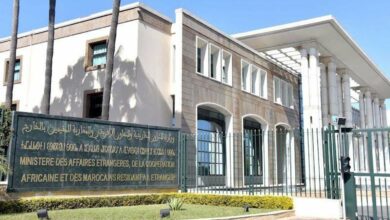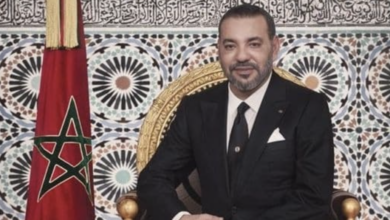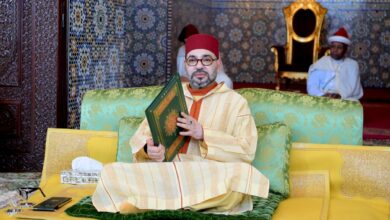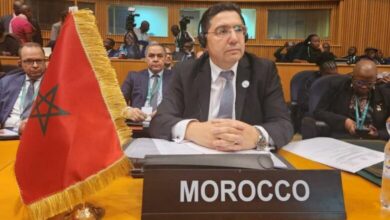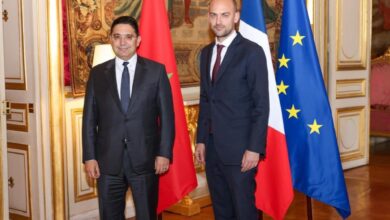Polisario, Iran and Algeria: The New Triangle of Instability Threatening the Sahara and European Security
Polisario, Iran and Algeria: The New Triangle of Instability Threatening the Sahara and European Security
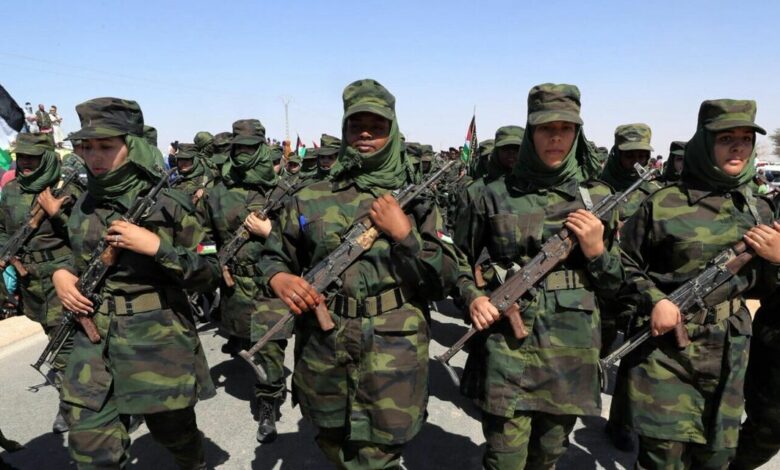
ALDAR / Based on the Italian magazine Panorama
Amid the war between Israel and Hamas, Tehran once brandished a threat that at the time seemed closer to fiction: the closure of the Strait of Gibraltar. That statement was initially dismissed as mere propaganda, since Iran has no significant military presence in the area. Yet today, this threat is taking on a far more tangible dimension.
The Foundation for Defense of Democracies (FDD), in a recent report, recalled revelations published by The Washington Post indicating that Polisario fighters had received training in Syria from the Hezbollah militia, with the aim of supporting Bashar al-Assad’s regime. This connection between the Polisario and Hezbollah is not new. In 2018, Rabat cut diplomatic ties with Tehran, accusing it of sending missiles to the separatist movement via its embassy in Algeria, with Hezbollah acting as mediator. In 2022, Moroccan diplomatic sources at the United Nations reported the delivery of Iranian drones to the group. According to FDD, the Polisario’s arsenal today no longer consists solely of conventional weapons but also includes advanced technologies such as systems for simulating drone attacks.
In this context, Algeria remains the pivotal actor. For decades, Algeria has provided the Polisario with comprehensive support—financial, logistical, and political. In the Tindouf camps, near the Moroccan border, the separatist leadership has found a safe haven and full protection. Yet the presence of these camps carries more than symbolic weight. Rabat asserts that the missiles which targeted in November 2024 a festival marking the anniversary of the Green March, close to the border, were launched from that very area. Moroccan authorities deemed the attack a “direct provocation,” all the more serious as it originated from Algerian territory.
Algeria’s stance goes beyond supporting a separatist movement: it reflects its drive to fuel its historic rivalry with Morocco, while simultaneously providing Iran and Hezbollah with a gateway into North Africa. This convergence multiplies destabilization risks, particularly in a region already plagued by jihadist groups in the Sahel. The trajectory of Adnan Abu Walid al-Sahrawi—a former Polisario member who later became a leader of Daesh in the region until he was killed in 2021 by French forces in Mali—serves as a stark example of how the Tindouf camps can morph into a recruitment reservoir for extremist organizations.
Beyond the military and geopolitical dimensions lies a silent humanitarian tragedy. For decades, tens of thousands of Sahrawi refugees have lived in Tindouf camps under precarious conditions, with limited access to water, healthcare, and education. Several humanitarian organizations have repeatedly denounced the lack of transparency in the management of international aid, claiming that part of it is diverted to fuel the Polisario’s military apparatus. As a result, the civilian population remains hostage to a chronic crisis, while separatists and their regional sponsors exploit the Sahara issue as a political and strategic bargaining chip.
According to FDD, this entanglement—combining Iranian support, Algerian sponsorship, and jihadist presence—poses a direct threat to Western interests. Hence the call for Washington to accelerate the opening of the promised consulate in Dakhla, as a concrete sign of support for Moroccan sovereignty over Western Sahara. The United States officially recognized this sovereignty in 2020 under President Trump. At the same time, the foundation recommends designating the Polisario as a foreign terrorist organization, given its armed activities and ties to extremist networks.
The Polisario question is no longer merely a territorial dispute. It has evolved into a multiplier of instability, fed by Algeria’s political and military backing and by Iran’s arsenal and proxies. For Morocco, a strategic ally of Washington, this represents a constant threat, while for the broader region it embodies an escalating source of fragility.
What emerges is a triangle of forces and interests: Algeria as the political and military patron, Iran as supplier of weapons and resources, and Hezbollah as training hub. This configuration not only complicates any effort to achieve a political resolution but also turns Western Sahara into a hotspot of regional tensions, with repercussions extending to the Mediterranean, West Africa, and European security.

